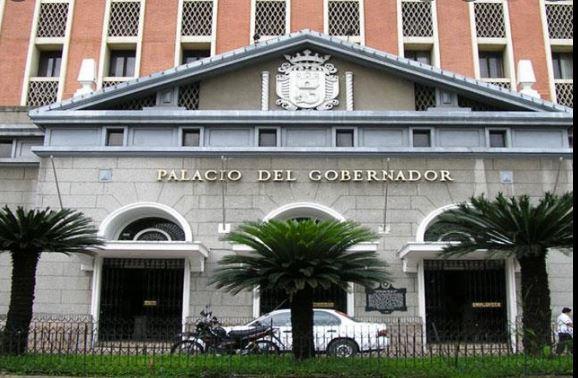Pasig firm-led JV submits lowest bid for 2025 internet voting contract
The joint venture between SMS Global Technologies, Inc. and Sequent Tech, Inc. has the lowest calculated bid for the 2025 Online Voting and Counting System contract, according to the Commission on Elections Special Bids and Awards Committee (SBAC) on Tuesday. Comelec spokesperson John Rex Laudiangco announced that the joint venture led by Pasig-based SMS Global […]


The joint venture between SMS Global Technologies, Inc. and Sequent Tech, Inc. has the lowest calculated bid for the 2025 Online Voting and Counting System contract, according to the Commission on Elections Special Bids and Awards Committee (SBAC) on Tuesday.
Comelec spokesperson John Rex Laudiangco announced that the joint venture led by Pasig-based SMS Global Technologies had the lowest offer among the four bidders who participated in the second round of bidding, namely Indra Soluciones Technologias De La Information, the joint venture of Voaltz, Inc., ePLDT and eBiZolution Inc., and the joint venture of AMA Group, Dasan, and Kevoting.
The joint venture of SMS Global Technologies, Inc. and Sequent Tech, Inc. offered to do the project for P112 million, which made them the “lowest calculated bid,” while the Voaltz-led joint venture proposed P425.528 million, making them the second lowest calculated bid.
The approved budget for the contract is P465,810,926.57.
The SMS Global Technologies, Inc.-led joint venture will now be subjected to post-qualification evaluation, Laudiangco said.
The AMA Group-Dasan-Kevoting joint venture was declared an ineligible bidder at the first part of the bidding process for failure to submit the Credentials of the Certifying Entity, which is required under the bidding rules.
Meanwhile, the Comelec SBAC found that the P459-million offer from Indra was not compliant with the rules.
“Despite being an eligible bidder, hindi po sila nagcomply sa pag-accomplish ng Financial Bid Templates po by indicating ‘N/A.’ For items po kasi that have no cost, the rules indicate that these must be indicated with ‘0’ or ‘-‘ to unequivocally declare that such is made available free or at no cost to the government,” Laudiangco said.
This rule is clearly stated under the revised implementing rules and regulations of Republic Act 9184 or the Government Procurement Reform Act.
According to Laudiangco, SMS Global Technologies has engaged with other government projects in the past, such as the Secure Online Services Cloud for the National ID of the Philippine Statistics Authority.
Amid the notable difference between the bid offers of the joint ventures led by SMS Global Technologies and Voaltz, Laudiangco said this kind of bid is “not new” and is expected in any competitive bidding.
“Hindi po bago ang ganitong pangyayari na may nagbibid ng mababa. Actually, dapat nga po ganito ang ineexpect natin sana dahil totoong competitive public bidding po ang nagaganap, at ang nagqualify lamang po ay owners of the technology or manufacturers themselves, kaya naibababa ang presyo dahil walang broker, walang middleman, walang distributors lamang or suppliers,” he said.
Laudiangco, who also sits as the vice chairman of the Comelec SBAC for the 2025 elections, made an assurance that they will conduct a “strict, extensive, transparent, rigorous, comprehensive, and intensive” post-qualification evaluation on SMS Global Technologies to ensure that the bidder is capable of delivering the contract requirements.
The Comelec will be holding the first-ever internet voting during the 2025 national and local elections for Filipinos who are abroad.
Comelec Chairman George Garcia earlier said that online voting will be conducted in 75 countries for the midterm polls in 2025, but voters should re-register.
Currently, Garcia said there are 17 countries that do not allow internet voting. In this case, Filipinos can go to embassies to cast their votes.
According to the Comelec Office for Overseas Voting (OFOV), online voting will not be conducted in the following areas:
1. Beijing, China
2. Chongqing, China
3. Dili, Timor-Leste
4. Guangzhou, China
5. Port Moresby, Papua New Guinea
6. Shanghai, China
7. Xiamen, China
8. Yangon, Myanmar
9. Ankara, Turkiye
10. Istanbul, Turkiye
11. Moscow, Russia
12. Abuja, Nigeria
13. Amman, Jordan
14. Beirut, Lebanon
15. Damascus, Syria
16. Tehran PE (Iran)
17. Tripoli PE (Libya)
Laudiangco said online voting is allowed in Tel Aviv, Israel, but this will not be available “due to the prevailing situation there.” — VBL, GMA Integrated News














